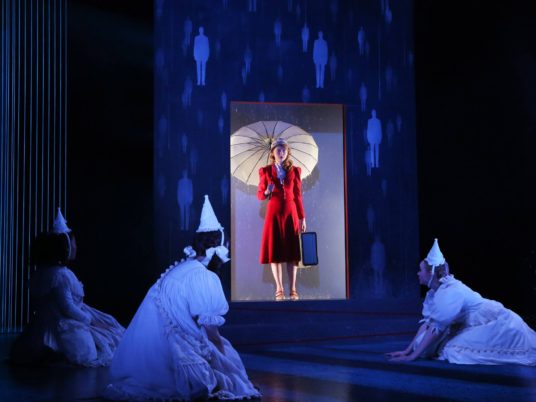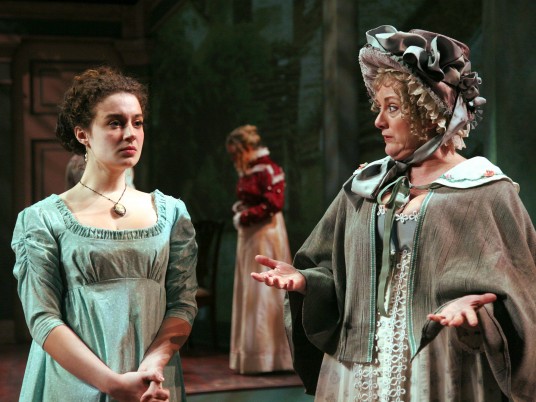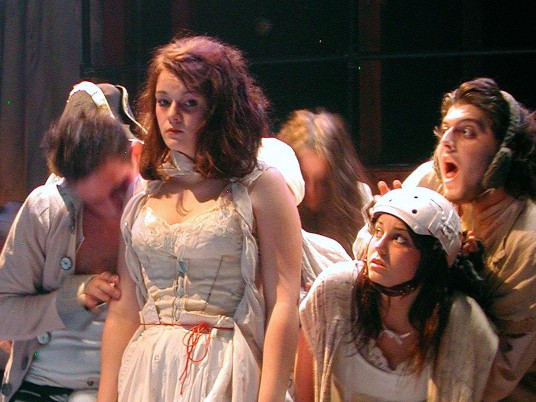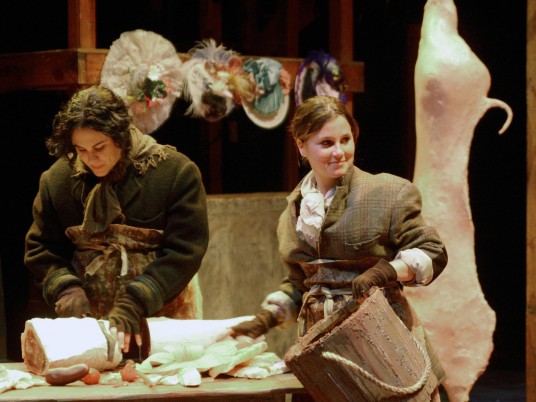Too Much Memory
Death, sex and the whiff of revolution. How far would you go to defend your truth? Too Much Memory is a contemporary retelling of Antigone; a fast and furious modern tale about speaking out. Tapping into the raw energy of youth, our ensemble production is set right here, right now. The theme is conflict between the loyalty to the state versus family in times of war. It asks what is truth? And does anybody care? The play is a call to action and reminds us that we have an obligation to speak up even as a fatalistic pull draws us to an inevitable conclusion. —Helene Kvale
Scenic/Production Designer,
Marti Simmons
Costume Designer, Natalie Abreu
Lighting Designer, Derek Jones
Sound Designer, Greg Purnell
Photographer, Gerry Goodstein
Connecticut Repertory Theatre
With the attack of 9/11, the subsequent war…the Homeland Security Act, the illegal wiretapping, adapting the play was the only voice I had. —Meg Gibson
Too Much Memory was first produced at the Fringe New York City in 2008 when George W. Bush was still President of The United States. Although the themes of the play reflect that era, our production is set in the present. The question of how we tackle conflict in the public and private sphere remains the same. Does national interest trump domestic needs? How do we construct truth? When a country is in crisis, do individual rights prevail? And to what extent can we rely on our memories to determine our actions?
In this contemporary tale about our obligation to speak out, the writers incorporate texts from Richard Nixon, Tom Hayden, Anne Carson, Susan Sontag and Hannah Arendt. As such, Too Much Memory is an “adaptation of an adaptation of a retranslation.” It is the latest in a long line of illustrious versions of Sophocles’ Antigone, first produced in 442 BC. The character of Antigone carries the burden of a tragic past on her young shoulders. Her father, King Oedipus unknowingly killed his father, then married his mother, siring four children: Eteocles, Polynices, Ismene and Antigone. Our protagonist is plagued by the curse of her family tree and the need to honor the memory of her father and brother. Grieving and powerless, she asserts her freedom to bury the disgraced Polynices in spite of her uncle Creon’s edict. In Greek, ‘antigone’ means ‘born to oppose.’ Antigone’s name governs her behavior whilst ‘a higher law’ drives the fatalistic pull of the play.
Why does this story still resonate for us? Is it the compelling mosaic of viewpoints? Is it the fact that every character seems to speak the truth? In Too Much Memory the Chorus states, “The most important questions are a paradox impossible to resolve. That’s what makes this such an interesting play.”
As a tribute to our university community, our production focuses on the raw energy of youth in all its fiery and quiet complexity. It references the technology that dominates our lives and determines our truth. It reminds us that love is at the center of that which can destroy us. Finally it reveals that through the separation of death, a greater union occurs.










